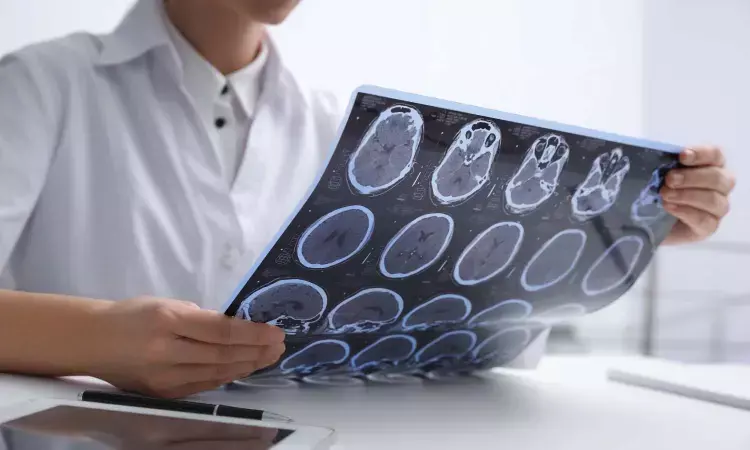- Home
- Medical news & Guidelines
- Anesthesiology
- Cardiology and CTVS
- Critical Care
- Dentistry
- Dermatology
- Diabetes and Endocrinology
- ENT
- Gastroenterology
- Medicine
- Nephrology
- Neurology
- Obstretics-Gynaecology
- Oncology
- Ophthalmology
- Orthopaedics
- Pediatrics-Neonatology
- Psychiatry
- Pulmonology
- Radiology
- Surgery
- Urology
- Laboratory Medicine
- Diet
- Nursing
- Paramedical
- Physiotherapy
- Health news
- Fact Check
- Bone Health Fact Check
- Brain Health Fact Check
- Cancer Related Fact Check
- Child Care Fact Check
- Dental and oral health fact check
- Diabetes and metabolic health fact check
- Diet and Nutrition Fact Check
- Eye and ENT Care Fact Check
- Fitness fact check
- Gut health fact check
- Heart health fact check
- Kidney health fact check
- Medical education fact check
- Men's health fact check
- Respiratory fact check
- Skin and hair care fact check
- Vaccine and Immunization fact check
- Women's health fact check
- AYUSH
- State News
- Andaman and Nicobar Islands
- Andhra Pradesh
- Arunachal Pradesh
- Assam
- Bihar
- Chandigarh
- Chattisgarh
- Dadra and Nagar Haveli
- Daman and Diu
- Delhi
- Goa
- Gujarat
- Haryana
- Himachal Pradesh
- Jammu & Kashmir
- Jharkhand
- Karnataka
- Kerala
- Ladakh
- Lakshadweep
- Madhya Pradesh
- Maharashtra
- Manipur
- Meghalaya
- Mizoram
- Nagaland
- Odisha
- Puducherry
- Punjab
- Rajasthan
- Sikkim
- Tamil Nadu
- Telangana
- Tripura
- Uttar Pradesh
- Uttrakhand
- West Bengal
- Medical Education
- Industry
COVID-19 has no impact on progression of Multiple Sclerosis: BMJ

A comprehensive study investigated the aftermath of COVID-19 in individuals with multiple sclerosis (PwMS) and found reassuring evidence that the virus does not significantly impact disease activity, disability progression, or cognitive function 18–24 months post-infection. The findings were published in Journal of Neurology, Neurosurgery & Psychiatry.
The study was conducted on 174 PwMS with a history of COVID-19 (MS-COVID) from March 2020 to March 2021, compared them to a carefully matched group of 348 PwMS with no COVID-19 history (MS-NCOVID). Parameters such as Expanded Disability Status Scale (EDSS), relapse rates, and changes in disease-modifying therapies were analyzed over the follow-up period.
Results indicated that both MS-COVID and MS-NCOVID groups exhibited similar rates of EDSS worsening, relapses, and changes in treatment plans. Brain MRI data also showed no substantial differences in the development of new lesions between the two groups. Notably, cognitive function, a crucial concern in multiple sclerosis, remained unaffected by a history of COVID-19, with comparable rates of cognitive impairment and similar scores on neuropsychological tests.
Moreover, the study found no disparities in the SARS-CoV-2 immune response between the two groups, suggesting that the cellular immune response to the virus does not exacerbate multiple sclerosis-related issues.
This research provides a crucial understanding of the long-term effects of COVID-19 on individuals already dealing with the complexities of multiple sclerosis. The findings offer a degree of reassurance, indicating that, at least in the observed time frame, COVID-19 does not seem to worsen the trajectory of multiple sclerosis.
The study emphasizes the need for continued vigilance and further investigation. Longitudinal studies will be crucial to monitor any delayed effects or changes beyond the current timeframe. This study contributes significantly to the ongoing dialogue about the varied impacts of COVID-19 on different patient populations and underscores the importance of tailored healthcare approaches for individuals with pre-existing conditions.
Source:
Montini, F., Nozzolillo, A., Tedone, N., Mistri, D., Rancoita, P. M., Zanetta, C., Mandelli, A., Furlan, R., Moiola, L., Martinelli, V., Rocca, M. A., & Filippi, M. (2023). COVID-19 has no impact on disease activity, progression and cognitive performance in people with multiple sclerosis: a 2-year study. In Journal of Neurology, Neurosurgery & Psychiatry (p. jnnp-2023-332073). BMJ. https://doi.org/10.1136/jnnp-2023-332073
Neuroscience Masters graduate
Jacinthlyn Sylvia, a Neuroscience Master's graduate from Chennai has worked extensively in deciphering the neurobiology of cognition and motor control in aging. She also has spread-out exposure to Neurosurgery from her Bachelor’s. She is currently involved in active Neuro-Oncology research. She is an upcoming neuroscientist with a fiery passion for writing. Her news cover at Medical Dialogues feature recent discoveries and updates from the healthcare and biomedical research fields. She can be reached at editorial@medicaldialogues.in
Dr Kamal Kant Kohli-MBBS, DTCD- a chest specialist with more than 30 years of practice and a flair for writing clinical articles, Dr Kamal Kant Kohli joined Medical Dialogues as a Chief Editor of Medical News. Besides writing articles, as an editor, he proofreads and verifies all the medical content published on Medical Dialogues including those coming from journals, studies,medical conferences,guidelines etc. Email: drkohli@medicaldialogues.in. Contact no. 011-43720751


